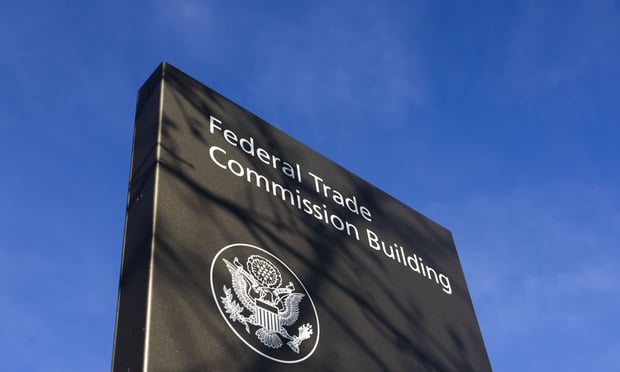 Since joining Campbell Soup just ayear ago as director of corporate development, Emily Waldorf hasalready worked on the $7.7 billion company's largest deal ever, the$1.5 billion purchase of Bolthouse Farms, a $689 million providerof fresh carrots, beverages and dressings.
Since joining Campbell Soup just ayear ago as director of corporate development, Emily Waldorf hasalready worked on the $7.7 billion company's largest deal ever, the$1.5 billion purchase of Bolthouse Farms, a $689 million providerof fresh carrots, beverages and dressings.
During the deal process, Waldorf led the due diligence andvaluation efforts and oversaw the complicated project as a whole,ensuring that the acquisition was a good one for shareholders. Shealways remained ready to say no, she recalls.
|“One of the things I was challenged with in the Bolthouse deal,and in every deal, was learning when to walk away, and being ableto say no,” Waldorf says. “I think it's one of the hardest thingsin M&A, knowing when to say no, when to walk away and when thevalue is destructive. There were multiple times throughout thisprocess, like every other, where we needed to make sure goingforward was the right decision. Fortunately, we were able to getthe deal done before we got to that point. You need to know whenany given deal doesn't make sense. We were lucky to not be tested,and have to say no.”
|Waldorf, 35, began her career at AT&T and has also workedfor Discovery Communications, Johnson & Johnson and the FBI. Inaddition to her work on the Bolthouse deal, Waldorf led Campbell'srecent divestiture of its agricultural seeds business.
| How did you get into finance?
How did you get into finance?
I've always loved numbers. I started out in math in college, butthe job opportunities weren't exactly what I wanted to do. So acounselor advised me to consider finance, and I decided to try itout. I loved it right away. My first job out of school was in thefinancial leadership program for AT&T, and one of my rotationswas in the M&A group. I fell in love with the fast pace and thestrategic view, the project orientation that doing deals allows meto do. I was fortunate to have the opportunity to make a career outof that.
You also worked for the Federal Bureau of Investigationat one time. Tell me about that.
The Special AdvisorProgram in the FBI was a program designed to bring M.B.A. gradsinto the FBI, particularly those with experience working in theprivate sector prior to business school. The purpose of the programwas to help the FBI apply those private sector learnings to thegovernment in order to make it more efficient and less reliant onexternal advisers.
I really wanted to learn more about project management andstrategy and to really be able to apply those when I came back tocorporate development, because, obviously, strategic thinking andproject management are what corporate development is all about.It's really about getting those cross-functional people togetherand having that single objective.
|What was involved in the BolthouseFarms transaction?
The really complicating factor around Bolthouse Farms was thecomplexity of the different businesses that it owned. It had thecarrot business as well as the premium juice business and someother smaller businesses. So the due diligence efforts related tothis transaction were quite complex. We had 20 differentworkstreams going on at any given time, and over 70 differentstakeholders. My role was focused on working with the banks andoutside advisers, as well as our internal folks, to coordinatediligence, and really manage the project. I worked on and led thevaluation efforts as well.
It was a very exciting deal for us. What was interesting anddifferent about it was that the strategic rationale was just soclear. Campbell Soup really wanted to get into the perimeter of thestore, where the consumer trends were leading us, and Bolthouse wasone of the few and the strongest brands in the perimeter of thestore, and really leads the packaged fresh space. It was excitingto be able to execute on such a strong strategic vision for thecompany.
|Does the “perimeter of the store” mean fresh instead ofcanned?
That's right. Packaged fresh to us meansanything with a value-added component that's sold in a freshformat, so things like salad dressings and juices that are freshand refrigerated. To us it really meant getting into things likefresh and refrigerated soups, dips and spreads. Things that are notnecessarily on the shelves today, but where we see a strong visionin consumer need. Bolthouse provided the basis for us to get inthere.
What was the most challenging aspect of the deal? Whatdid you learn?
What was really challenging about this deal was that we were upagainst some pretty intense private equity bidders. They hadconvinced the seller that they could move very quickly. Being acorporate, we had a reputation, like all other corporates, that wewould not be able to move quickly. So what was challenging but alsoextremely rewarding was that the team really came together at theninth hour and was able to negotiate and sign the deal within a fewdays' time. So it showed our speed and agility.
What is the most challenging part of your joboverall?
Being able to say no and walk away when a deal gets tough. AtCampbell's, we've had a few instances in particular where some ofthe valuation and multiples being paid in the industry wereunacceptable to shareholders and didn't lock in a fair enoughreturn and we've had to walk away. So that's alwayschallenging.
Another aspect more generally is needing to work with people inall different areas of the business. It's challenging, but it'salso the best part of my job, that you get to dig into thesecomplex issues and work with people from all around thebusiness.
|What's the most important lesson you've learned in thecourse of your career?
One of the things is that has really helped my career, and otherpeople could potentially learn from, is to not be afraid to take onall different kinds of projects, including those that may not seemas glamorous as others. A lot of my success to date has beenbecause I was the first person to raise my hand for some of thoseprojects, and it's really helped me to grow and be a teamplayer.
Can you give me an example?
Since I started at Campbell's, I worked on a small divestiture.Divestitures are of course always difficult strategic decisions tomake. And it's not a glamorous project, because it's not $1.55billion, it's not the largest transaction the company is going todo. And you might not be the favorite person at the end of the day.However, you get to work with all kinds of different people. Youget to really know a business, dig into it, and you get to know thebuyer.
Strategic rationale is a big thing for me; I don't like dealsthat are purely financial. I think it's extremely important for anydeal to have a strong strategic rationale. A lot of times thesesmall divestitures make a lot of sense from a shareholder-returnperspective but aren't always the most glamorous. I think they'rethe ones where you get to learn a lot, and you have moreflexibility in shaping your role.
|Have you had mentors?
I've had lots of mentors along the way, both formal and informal.They've played a large role in my success to date, but I alsobelieve everyone is responsible for their own career development,so I like to seek out and find mentors who can help in the areasthat I have challenges with at any given point in time. When Istarted at Campbell's, I wanted to work on networking, so I soughtout someone I thought was really good at networking, and developedan informal mentoring relationship with that person. But I like theflexibility of also having other people as sounding boards, to keepme grounded in my projects and also to provide a differentperspective on operations and strategy. Having a network of mentorsis extremely important.
For the complete 2012 30 Under 40 list, see Ascending the Corporate Ladder. For last year's list,see Readyto Take Charge.
Complete your profile to continue reading and get FREE access to Treasury & Risk, part of your ALM digital membership.
Your access to unlimited Treasury & Risk content isn’t changing.
Once you are an ALM digital member, you’ll receive:
- Critical Treasury & Risk information including in-depth analysis of treasury and finance best practices, case studies with corporate innovators, informative newsletters, educational webcasts and videos, and resources from industry leaders.
- Exclusive discounts on ALM and Treasury & Risk events.
- Access to other award-winning ALM websites including PropertyCasualty360.com and Law.com.
*May exclude premium content
Already have an account? Sign In
© 2024 ALM Global, LLC, All Rights Reserved. Request academic re-use from www.copyright.com. All other uses, submit a request to [email protected]. For more information visit Asset & Logo Licensing.







